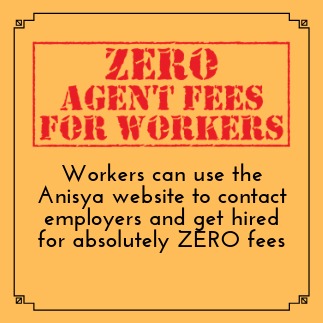Life of a modern-day maid
Article is taken from: http://edition.cnn.com/2015/02/11/asia/domestic-workers-helpers-maids/

Hong Kong (CNN)After too many episodes of British period drama Downton Abbey, viewers could be forgiven for thinking that modern-day maids scurry about with their eyes downcast, wearing twee aprons and polished shoes.
That’s only partly true. There’s no uniform (usually) and if their eyes are downcast, they’re more likely to be tapping away on a cellphone than showing deference to their employer.
That said, all maids (a term many dislike) are different. Being people, some clearly enjoy the job more than others. Some are treated as members of the family; others become the victims of appalling treatment and abuse.
While in many parts of the world maids remain the preserve of the wealthy, in parts of Asia and the Middle East relatively rates of low pay make live-in home help an affordable option for average-earning households.
For their part, most helpers, as they’re known, have the single aim of earning more money than they could at home, to send back when, and if, they can.
Who are they?
According to the International Labour Organization, there are as many as 100 million domestic workers worldwide. Most are women from Asian countries, including the Philippines, Indonesia, Thailand, Bangladesh, Nepal, Pakistan, Sri Lanka and Myanmar.
In Hong Kong, some 320,000 foreign domestic helpers — or “helpers” or “aunties,” as they’re sometimes referred to — help prop up the economy by filling the gap in childcare, aged care and doing all the other jobs that make it difficult to juggle family and full-time work.
Paid maternity leave is limited to 10 weeks and many local women are expected to return to work full-time. In that case, helpers act as maternity nurses, on top of their other duties including cooking, cleaning and maintaining the home.
They’re often seen taking children to school, playing in the park, walking dogs and running errands. In countries where they’re required to live in, many are treated as ready-made babysitters while parents work late or go out.
Where do they work and how much are they paid?
Rates vary country to country. In Hong Kong the minimum wage is HK$4,110 ($530) a month, which includes food and accommodation for a six-day working week.
In Singapore, there is no minimum wage, though, generally, locals pay at least S$450 ($330) a month. After a concerted campaign, the city-state introduced a mandatory day off each week in January 2013, though it only applies to workers employed after that date.
Countries sending domestic workers to the United Arab Emirates dictate how much they should be paid each month — around $200 to $400 –but they are often paid less, says a Human Rights Watch report.
By comparison, in Canada, domestic workers must be paid the general minimum wage, which as of June 2014 was C$11.00 ($8.70) an hour.
How bad are working conditions?
The recent conviction of a Hong Kong housewife for beating her Indonesian maid highlights the darker side of a multi-billion dollar industry. Of employing countries, Hong Kong has some of the tougher rules on rights, but many campaigners say they don’t go far enough.
Singapore has long attracted criticism for its failure to protect workers. In 2011, it was one of eight countries that abstained from voting in favor of the International Labour Organization’s Convention 189. The convention is designed to improve the rights for the world’s domestic workers by setting minimum standards for pay and rest times, etc. So far it’s only been ratified by 17 countries.
According to Human Rights Watch, the United Arab Emirates has an appalling record when it comes to protecting domestic workers. Its report, “I already bought you,” says the Emirates’ lack of labor laws exposes workers to “overwork, underpay and abuse.”
The typical day
In Hong Kong, start and finish times are dictated by the employer. The requirement for helpers to live-in means there’s no natural cut-off time; some are viewed as permanently at their employers’ disposal.
Duties vary from home to home. They may be required to make breakfast, clean the house, do the washing, tidy up, scrub the bathroom and make lunch and dinner for the family. Some get a lunch break, others don’t. Some work late into the night; others retreat for some private time in their bedrooms — if they have one.
Typically small Hong Kong flats make it difficult to put any distance between work and their private lives.
While stories of exploitation are relatively common, not every employer treats his or her helper as a modern-day slave. Pay, hours, duties, rest times and holidays are negotiated and respected.
However, campaigners point out that domestic workers come to the table with few bargaining chips — and in many cases huge agency debts — so tougher legislation is needed to protect them from unscrupulous agencies and employers.
View all posts in Anisya Blog
Posted on 18 Feb 2015

Help FDWs avoid debt
Anisya can help with the MOM paperwork

Found a suitable worker on Anisya? We can help with the MOM paperwork. Our service fee is $450. Click here for more info.
Full service hiring available

Need to hire an FDW in a hurry? Let Anisya help you with screening, short-listing and scheduling interviews with workers, and managing all the MOM paperwork formalities! More details here.
Anisya Web Services works in partnership with Anisya LLP (MOM License 12C5866) for MOM related transactions.
Anisya is a proud Social Enterprise member of the Singapore Centre for Social Enterprise (raiSE) and the Business For Good community which promotes the use of business for social impact.
